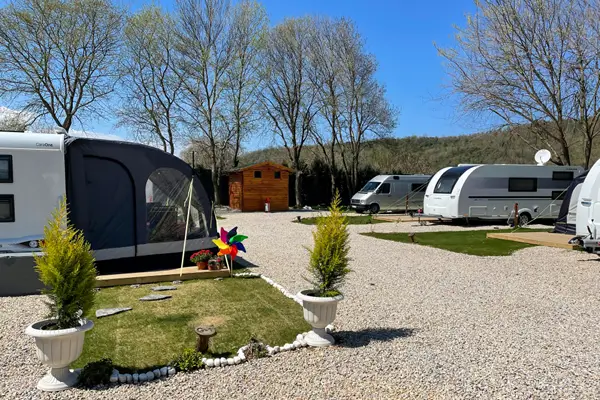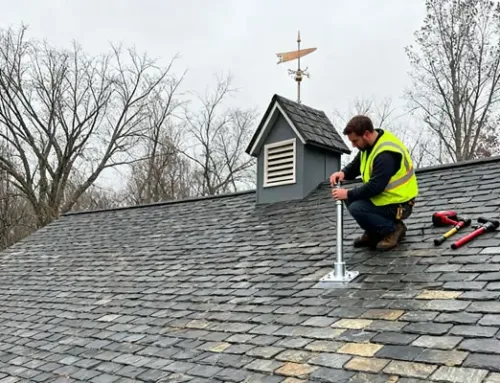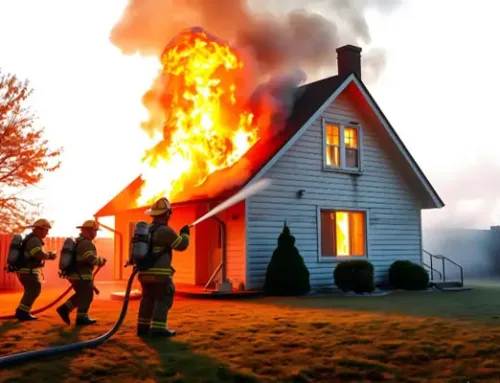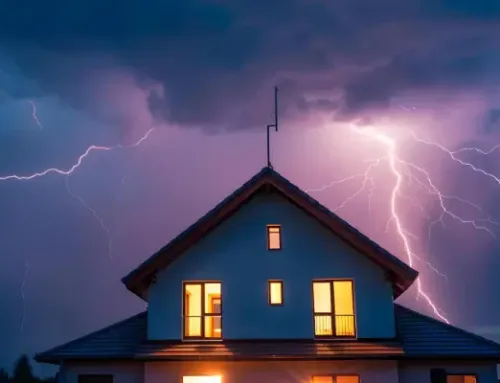Why a Lightning Protection System is Essential for Camping Grounds and RVs in Northern VA
Camping is a beloved outdoor activity that allows people to connect with nature. However, it also comes with inherent risks, one of the most underestimated being lightning strikes. Open fields, tall trees, and exposed structures make camping grounds in Northern Virginia particularly vulnerable to lightning, putting campers and property at risk.
Understanding the Risk of Lightning on Camping Grounds in Northern VA
According to the National Weather Service, lightning strikes the United States about 25 million times each year, causing injuries, fatalities, and significant property damage. Northern VA experiences frequent thunderstorms, especially in the summer months, making lightning protection a crucial safety measure for campgrounds in the region. Without a proper lightning protection system in place, campgrounds could face disastrous consequences, including fires, structural damage, and even loss of life.
Why Lightning Protection is Crucial for Camping Grounds in Northern VA
- Camper Safety – The most critical reason to install a lightning protection system on a campground is to ensure the safety of campers and staff. Northern VA is home to many popular camping sites, including Shenandoah National Park and Bull Run Regional Park, where storms can develop rapidly. A properly designed protection system helps reduce the risk of electrocution or injury.
- Protection of Facilities – Campgrounds often have essential infrastructure such as cabins, restrooms, picnic shelters, and electrical systems. A lightning strike can cause fires, destroy electrical circuits, and lead to costly repairs. Installing grounding rods and surge protection devices can safeguard these assets, particularly in areas prone to severe weather.
- Fire Prevention – A direct lightning strike can ignite dry grass, trees, or wooden structures, leading to wildfires that spread quickly. Northern VA has a mix of forested areas and open fields that can be highly susceptible to fires during the dry summer months. A well-designed lightning protection system helps mitigate fire risks by redirecting electrical energy safely into the ground.
- Preventing Equipment Damage – Many modern camping facilities rely on electronic systems for lighting, security, and communication. A lightning strike can cause power surges that damage these essential devices, leading to expensive replacements and downtime.
- Legal Liability and Insurance Benefits – Many insurance providers encourage or even require lightning protection systems for outdoor facilities. Implementing a proper system can help reduce liability risks and may lower insurance premiums for campground owners in Northern VA.
Do You Need a Lightning Protection System for Your RV in Northern VA?
RVs provide a mobile and convenient way to enjoy the great outdoors while maintaining some of the comforts of home. However, one of the biggest concerns for RV owners is whether their vehicle needs lightning protection, especially when camping in Northern VA’s varied landscapes.
How Lightning Affects RVs
RVs, like any other vehicle, can be struck by lightning. However, the risk and impact depend on the structure and materials of the RV.
- Metal-Framed RVs – If your RV has a metal frame, it can act as a Faraday cage, which helps disperse lightning safely around the exterior shell, reducing the risk to occupants. However, internal electrical components may still be vulnerable to damage.
- Fiberglass or Non-Metallic RVs – These types of RVs do not provide the same level of protection as metal-framed ones. Without a conductive shell, the electrical current from a lightning strike can cause severe damage to the interior.
How to Protect Your RV from Lightning Strikes in Northern VA
If you frequently camp in areas prone to lightning storms, consider the following protective measures:
- Surge Protectors – A high-quality surge protector can help prevent electrical damage from power surges caused by nearby lightning strikes.
- Portable Grounding Rods – These devices allow RV owners to create a grounding system that helps divert electrical energy away from the RV in case of a strike.
- Avoid Parking Near Tall Objects – Trees, poles, and other tall structures can attract lightning. Many camping spots in Northern VA, such as Prince William Forest Park and Sky Meadows State Park, have dense tree cover, so choosing an open, lower-risk area is advisable.
- Unplug During Storms – Disconnect electrical hookups during a thunderstorm to prevent surges from entering your RV’s system.
- Seek Shelter in a Safer Location – If a severe storm is approaching, the safest place to be is in a solid, grounded structure rather than inside an RV.
Conclusion
Lightning protection systems are a vital safety investment for both camping grounds and RVs in Northern VA. Campground owners should implement comprehensive protection plans to safeguard visitors, facilities, and equipment. Meanwhile, RV owners should take proactive measures to minimize lightning-related risks while on the road or parked in exposed areas.
By installing proper lightning protection, campgrounds can ensure a safer and more enjoyable outdoor experience for their guests, while RV owners can travel with peace of mind, knowing they are protected against the unpredictable forces of nature.
Are you looking for expert lightning protection solutions in Northern VA? Contact us today to learn more about how we can help secure your campground or RV against lightning hazards!
Here are some notable campgrounds across Northern Virginia, Maryland, West Virginia, South Carolina, and North Carolina:
Virginia:
-
Yogi Bear’s Jellystone Park™: Luray, VA
Nestled in the picturesque Blue Ridge Mountains, this campground offers 73 scenic acres near the Luray Caverns and Shenandoah National Park. -
Grayson Highlands State Park
Located in Grayson County, this state park is adjacent to the Mount Rogers National Recreation Area. It offers hiking trails, scenic views, and access to wild ponies roaming the balds. -
Crabtree Falls Campground
A family-run campground situated half a mile below Crabtree Falls along the Tye River, offering tent sites, pop-up, and RV sites.
Maryland:
- Brunswick Family Campground
Located between the Potomac River and the C&O Canal near Harpers Ferry, WV, this campground offers over 100 scenic campsites and is conveniently located about an hour from the Washington DC and Baltimore beltways.
West Virginia:
-
Mountain Lake Campground and Cabins
Situated in Summersville, WV, this campground offers family-friendly camping with amenities like cabins, RV sites, and tent sites. -
Grandview Sandbar Campground
Located within the New River Gorge National Park, this campground offers picturesque riverside camping experiences.
North Carolina:
-
Mount Pisgah Campground
Located along the Blue Ridge Parkway, this campground offers stunning mountain views and access to numerous hiking trails. -
Crowders Mountain State Park
This park offers backcountry camping sites and is known for its challenging hikes and scenic vistas. Note: As of November 2024, camping at Crowders Mountain remains unavailable throughout November.
South Carolina:
-
Ocean Lakes Family Campground
Located in Myrtle Beach, this campground offers a variety of amenities, including beachfront access, pools, and recreational activities. -
Devils Fork State Park
Situated on Lake Jocassee, this park offers camping, hiking, and water activities in a scenic mountain setting.
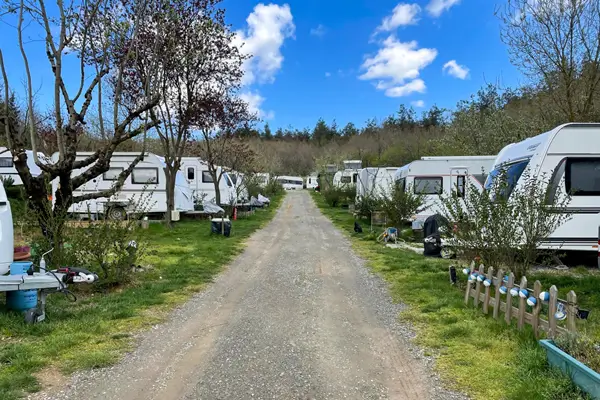
Contact Information
Phone: 571-839-4793
Email: novalightningprotection@gmail.com
Virginia:
21010 Southbank St.
Sterling, VA 20165


